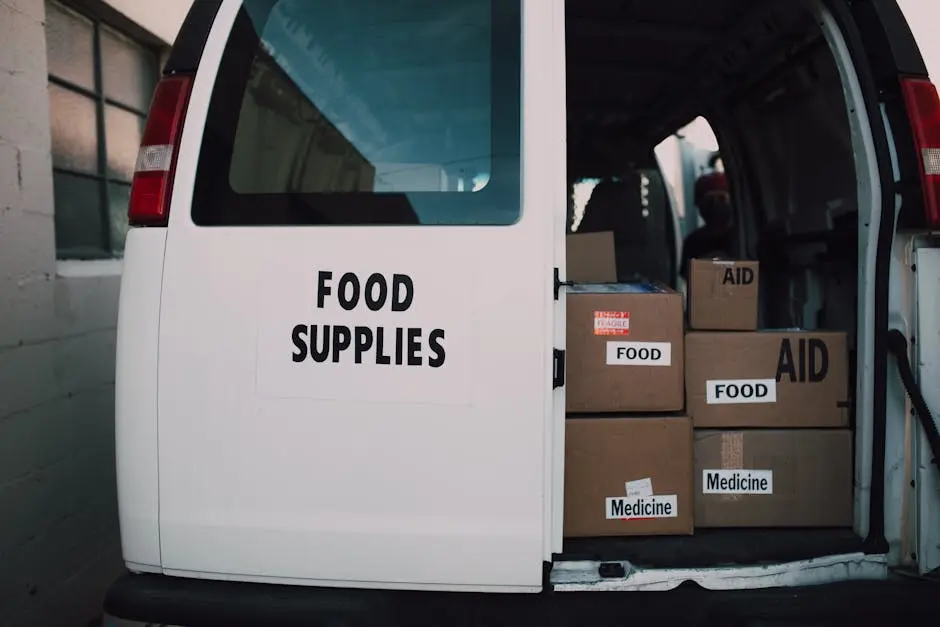How to Build the Ultimate Home Hurricane Kit in Florida
Living in Florida, preparing for hurricanes isn’t just a good idea—it’s necessary. Whether you’re a long-time resident or new to the state, having a well-organized hurricane kit can make a significant difference during storm season. In this blog, we’ll go through the essentials of building the ultimate home hurricane kit tailored for Florida’s unique challenges.
Understanding the Florida Hurricane Season
Florida’s hurricane season runs from June to November, with the peak occurring from August through October. Knowing this timeline can help you prepare your hurricane kit well in advance, ensuring you have what you need when a storm is approaching. Understanding the frequency and patterns of hurricanes in this region is crucial. You can track storm activities through resources like the National Hurricane Center. This can help you anticipate potential impacts and update your preparations accordingly.
Hurricanes can be unpredictable, but the key to managing their impact lies in preparation. With climate conditions changing, many experts are forecasting more intense storms in the coming years. This makes it even more imperative to stay informed and prepared. Watching weather patterns and news updates during the season can provide timely information that is vital for safety and preparedness. By doing so, not only do you protect your property, but you also ensure the safety of your loved ones.
Essential Items for Your Hurricane Kit
Your kit should include water, non-perishable food, first aid supplies, flashlights, batteries, and any necessary medications. It’s also wise to have a portable phone charger, a whistle to signal for help, and a local map. Water is crucial; aim for at least one gallon per person per day for several days. Non-perishable foods like canned goods and dried fruits can sustain you if electricity is unavailable. Having a battery-powered radio allows you to stay updated on news and emergency broadcasts, which is especially useful during power outages.
Moreover, consider adding important documents sealed in waterproof bags. IDs, insurance policies, and medical records are essential for identification and emergency needs. Personal hygiene products, like hand sanitizers and wipes, ensure cleanliness. For families with infants or pets, remember to include baby formula, diapers, pet food, and any other specific necessities. Preparing for diverse needs ensures everyone in your household is comfortable, regardless of the storm’s impact.
A multi-tool, duct tape, and plastic sheeting can also be incredibly useful in a pinch. These items can help temporarily repair damage or secure parts of your home against further harm. You might also consider having a utility tool to safely turn off utilities if necessary. Think about the specific needs of your family and customize your hurricane kit to meet those needs. For example, you may need to include prescription medications or eyeglasses, depending on health conditions.
Special Considerations for Florida Residents
Living in Florida, consider storing outdoor furniture, securing windows with shutters, and having a plan for evacuating your home. Pay attention to flood-prone areas and have an emergency financial kit ready. Florida’s geography makes it especially susceptible to storm surges and flooding, which means it’s crucial to have a strategy for these events. Learn your local evacuation route and have a plan in place for where you can stay if you need to leave your home quickly.
The Floridian landscape, with its low-lying areas, poses specific risks during hurricanes. It is wise to consult local resources for flood maps and guidance on building stronger structures. Ensuring your property is storm-ready can prevent extensive damage. Reinforcing your garage door and checking your roof’s integrity are small steps that can save significant costs post-hurricane. The Federal Emergency Management Agency (FEMA) provides valuable information on how to safeguard your property effectively.
To protect your home and family, it’s also worth considering bolstering your emergency plans with updated insurance policies. Make sure to read the fine print and understand what is covered under your plan. State laws in Florida require specific policies for hurricane coverage, so make sure you have adequate protection. Reviewing your policy before the storm season arrives is always a good idea to avoid any last-minute surprises or coverage gaps.
Tips for Maintaining and Updating Your Kit
Regularly check the expiration dates on food and medicine, replace batteries, and ensure all equipment is in good working order. Keep your kit in a designated spot that’s easily accessible in an emergency. Setting reminders on your calendar can help you remember to check your supplies. Once hurricane season concludes, use any perishable items with upcoming expiration dates to minimize waste.
Stay connected with local community alerts and updates. Many areas offer emergency texting services and apps that can send alerts to your phone. This real-time information can be crucial in a changing weather situation. Additionally, it’s beneficial to involve the entire family in a safety plan. Regularly talking through each aspect of the plan ensures everyone knows their role when a storm hits, giving you peace of mind that your household is prepared to react quickly.
Engaging with local disaster preparedness workshops or online webinars can keep you informed about the latest best practices in hurricane readiness. These sessions often provide new insights and strategies that can be applied to your home preparedness routine. An investment in knowledge today ensures safety tomorrow, making these efforts worthwhile for anyone living in hurricane-prone regions like Florida.
Prepare, Stay Safe, and Weather the Storm
Equipping your home with the ultimate hurricane kit not only prepares you for storm season but also brings peace of mind. With the right supplies and organization, you’ll be ready to face any storm that comes your way. Stay safe, informed, and prepared—because in Florida, it’s not a matter of if a hurricane will come, but when.

